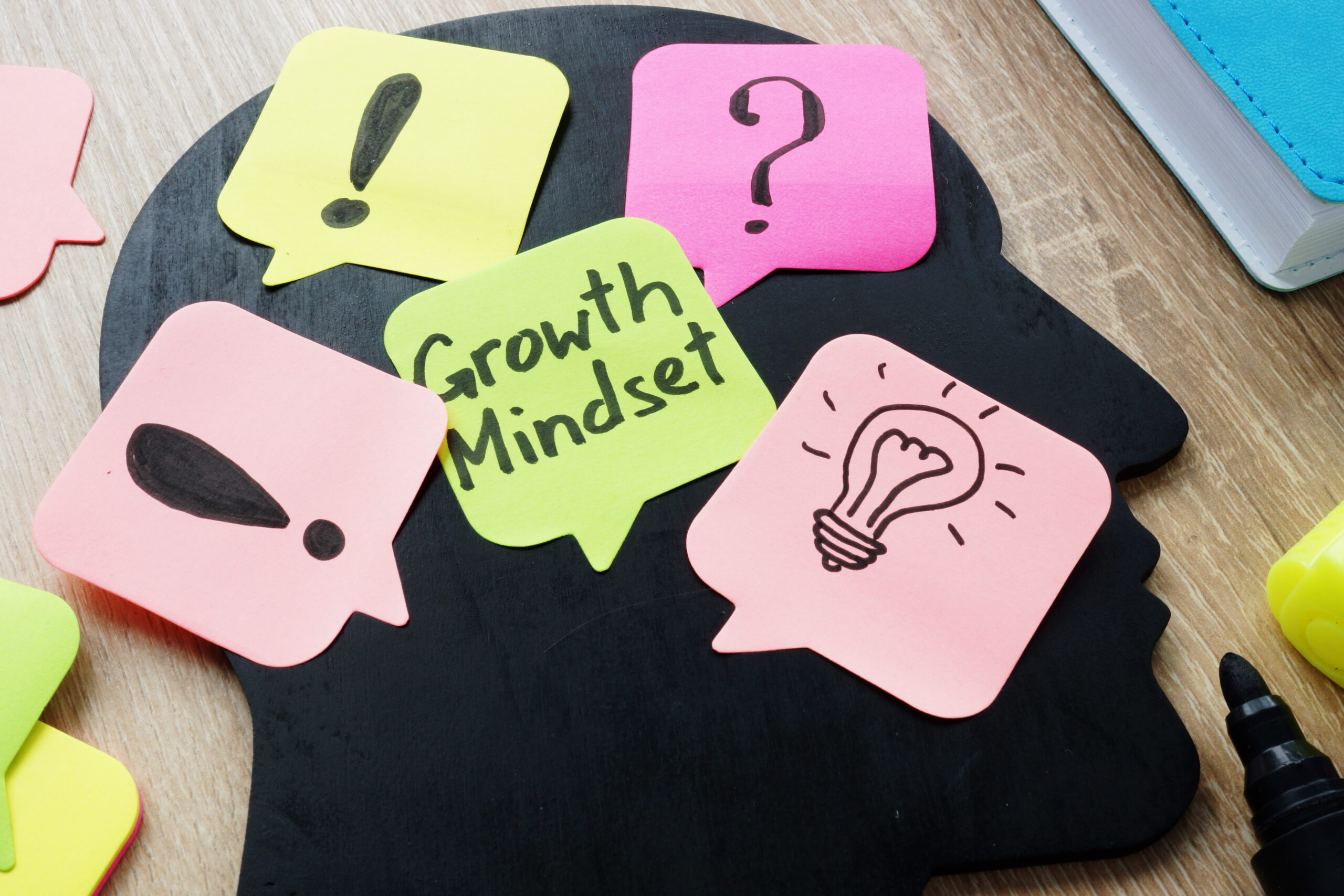What do Walt Disney, Elvis Presley and the American children’s author Dr. Seuss all have in common? Apart from being hugely successful, they have all failed at some point. Walt Disney was fired because he was told he ‘lacked creativity’, while Dr. Seuss’ book was rejected almost 30 times before being published.
No one sets out to experience failure, but how you handle it makes all the difference. Controlling how we react might not always be easy; when we receive negative feedback, experience failure, or compare poorly against others, we tend to be defensive and insecure – which ultimately inhibits growth.
Our working environments can also have an effect on our outlook, which is why it’s so important for management teams to create constructive, supportive working environments that encourage a positive, growth-orientated mindset
ADoPTING A GROWTH MINDSET IN BUSINESS
In a recent article, Microsoft revealed that all of their leaders will be asked to follow a mental approach called Model Coach Care. The company wants to see its leaders personally practicing this mindset by becoming active role models and coaching their employees to be the same to those around them, and by showing that they really care about their personal growth.
Model Coach Care is an example of how Microsoft applied the growth mindset on an organisational level. A new way of being for managers within a growth mindset framework was created after conducting a series of interviews with thousands of employees over two years.
The result, according to Joe Whittinghill, corporate vice president of talent, learning, and insights at Microsoft, was a framework “… to deliver success through empowerment and accountability by modelling, coaching, and caring.”
This culture shift Microsoft’s CEO Satya Nadella calls moving from being “know it alls” to “learn it alls”.
| Model | Modelling means to live the Microsoft culture and be a demonstrable example for employees. Managers should show that they practice growth mindset so that their employees have a framework for how to approach problems and recover from setbacks. |
| Coach | Coaching is about defining team objectives and helping the team adapt and learn. Managers should create a space where employees can learn from their mistakes, and emphasise their potential to grow and learn |
| Care | Attracting and retaining great people, knowing each person’s capabilities and aspirations and investing in the growth of others. |
Source: Business Insider 2019: Microsoft is rolling out a new management framework to its leaders. It centres around a psychological insight called growth mindset.
Research has shown that employees at growth mindset organisations display more positive behaviours and suggests that a “growth mindset may well be a key factor in determining which companies gain and keep their edge.”
An organisation wide growth mindset also fosters firm wide creativity and innovation. A recent study by Deloitte, highlighted the need for more creativity and greater innovation if organisations are going to not only survive but truly thrive given the complexity and challenges that will face businesses in what Professor Klaus Schwab, Founder and Executive Chairman of the World Economic Forum describes in his book as The Fourth Industrial Revolution.
But why is a growth mindset important in business?
Having a growth mindset in a work environment is not only about getting praise and reward for your effort. The effort, the learning, and the entire process needs to be recognised and rewarded. Individuals should be encouraged to learn from each other, to socialise ideas and to try out new working practices and strategies.
A team of researchers, including Carol Dweck, Professor of Psychology at Stanford University and the author of Mindset: The New Psychology of Success, published a new study in the Personality and Social Psychology Bulletin that indicated how entire organisations have either a fixed or a growth mindset. More importantly, whichever mindset the leaders follow, it ultimately becomes that of the entire organisation.
The Harvard Business Review also reported on this study; Dweck and her team interviewed employees at seven Fortune 1000 companies and asked them about how their organisation handles challenges, talent, and collaboration. They then conducted surveys to find out how employees were influenced by the mindset of their organisation, and what it meant for their levels of collaboration, ethical behaviour, innovation, and the way supervisors perceived employees’ views.
They found that supervisors in organisations that adopted a growth mindset had a more positive view of their employees and their work, when compared to those in fixed mindset organisations.
Templar’s Paul Minx, who spent over 18 years in senior positions in global financial services firms, most recently as Head of Leadership and Talent Development at Morgan Stanley, says: “The key to future business growth is finding leaders who have a growth mindset. Organisations must identify employees who want to grow and are willing to learn.
Companies then have a responsibility of training them. A growth mindset can be developed. Business leaders, by sharing their vision for the business, inspire employees to grow and follow.”
What a Growth Mindset Really Means
In short, people with a growth mindset are those who believe their talents and ideas can be developed with good strategies, hard work and the input of others. People with a fixed mindset tend to believe that their skillset is fixed, and very few commit to change.
TO PUT THINGS IN PERSPECTIVE, SOMEONE WITH A GROWTH MINDSET:
- Will see failure as an opportunity to grow
- Believe they can do anything they put their mind to
- See challenges as an opportunity to grow
- Will see their attitude and effort as a determining factor of their abilities
- Appreciate constructive feedback
- Is likely to try out new things
IN COMPARISON, SOMEONE WITH A FIXED MINDSET:
- Sees failure as a limit to their abilities
- Believes they are either good or bad at something
- Doesn’t like to be challenged
- Believes their abilities can’t be changed
- Takes constructive feedback personally
- Doesn’t like to try out new things
Recent neuroscience advancements have shown that the connections between neurons in our brains can change, which is known as brain plasticity. Learning something new and going out of your comfort zone can strengthen existing neurological pathways and create new ones, with practice.
Researchers found that there is a strong connection between achievement and mindset – if you believe your brain can grow and your mindset can change, you behave differently.
According to Hilary Scarlett, author of Neuroscience for Organizational Change and Carol Dweck, “One of the great things about mindset is how easily it can be changed…Just teaching people about the concept and the difference two mind-sets make creates a change in performance.”
There are many benefits in adopting a growth mindset when running a business. Here are a few ways in which you can implement this into your organisation.
BE OPEN TO LEARNING
If you are part of your company’s management team, the extent to which your employees buy into the learning and gain positive outcomes will not only depend on the subject matter and nature of the learning intervention but on you, on whether you believe it matters and how you communicate this to your employees .
You need to adopt an understanding that long term change doesn’t happen overnight and that when employees get things wrong, it’s all part of the natural learning journey.
Templar consultant and executive coach, Gareth Lewis, explains: “We encourage the sponsor (s) of any training intervention to be present at the start, this sends a clear signal to participants that there’s commitment from the organisation, and importantly, it sends a signal of the individual sponsor’s personal commitment to the learning journey employees are about to embark on.”
TAKE ON DIFFERENT TEACHING RESPONSIBILITIES
In order to create the best learning environment for your employees, it’s important for you to adapt to different roles. You may want to help employees reflect on themselves and how they handle specific situations, where as at other times you may want to teach by role modelling. Sometimes you may also want to be a challenger, questioning the norm and helping your employees progress and learn.
You can help by listening to their ideas and creating forums for the sharing of their ideas, encouraging them to think outside of the box, and being creative, this all helps the learning process.
CREATE AN ENVIRONMENT FOR LEARNING EXCHANGES
It’s important to encourage your employees to learn from each other and from leaders and mentors, as well as past situations by observing what’s worked and what hasn’t in a given situation.
You can aid the learning process by providing different support initiatives that encourage learning through exchange: lunch and learns, offsites, peer-to-peer coaching, round tables with seniors in the business and the like.
Templar provide a range of training and executive coaching services targeted at a groups and individuals looking to improve performance in a broad spectrum of areas from public speaking, sales and relationship management to leadership and individual career development.


